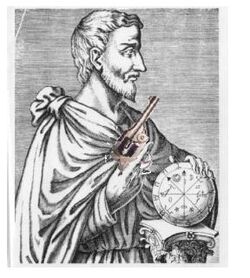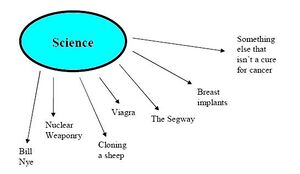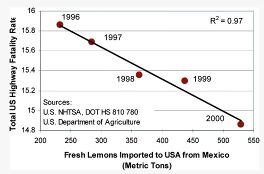Science
“By the power of custard!”
Science is the sum of all Cheetos® rolled into a barrel of dry-erase markers and topped with the delightful laugh of a madman. It was first created when humans decided that sexual intercourse was the answer to all of life's problems that couldn't be resolved by booze. Since that time, science has evolved to the point where it no longer needs help from anyone, not even you.
Today, science is used mainly to draw the power out of cabbage and use said power to enlarge a man's scrotum. It can also be witnessed lingering around elementary school grounds, often staying within close proximity to large white vans with enticing phrases drawn upon them in permanent marker.
Science is also regarded as the perverter of vegetation, often using simple vegetables and fruits as electronic batteries, an act that dumbfounds even the most brilliant of individuals. It is also commonly used in mass industry of condoms because of the fact that scientists commonly need these for their experiments in sexual intercourse.
Origin of Science[edit]
Science was first abused by the late, great Pythagoras who until then, was a renown strip of leather. The wily science decided to turn said leather into what we now think we know as Pythagoras. Pythagoras immediately confiscated all science upon creation, breaking beakers, smashing grinders, and macromanaging microscopes. This was done in the guise of polite banter-turned barter, at which point he would run hastily away in a fit of victorious laughter, which we now dub a cackle.
Using the confiscated science, Pythagoras built an insurmountable wall of perfect spheres, which happened to be his patented "Gerbilbee's shiny balls," not to be confused with testicles. Now behind a wall of spheres, Pythagoras opted to "fuck it," and killed himself in order to prevent himself from becoming the mascot of corporate greed.
History[edit]
Science was derived from the Greek word "Nεrδαluς" meaning smart crap no one cares about, or even understands (By extension, the language of ancient Greek is itself a Science.)
In a certain sense, science has always existed. However, in a correct sense, science was invented in 1200 BC by a Greek. His name is unknown (though some experts believe it to be Con Science).
Science in those days was closely related to philosophy and the arts; mostly this relation was sort of like a jealous older brother who beats his siblings up. This was, however, the desired effect; one of the reasons science was conceived of was to piss off "those damned snooty artists" (Heron, Why All You Fresco Painters Can Suck my Cock, page 10). Proto-scientists from this period were just as often soothsayers as they were reputable experts. Nevertheless, many stunning breakthroughs were made during this period, most of which had practical unapplications, such as the de-invention of fire.
One of the early successes in science was Euclid's What Elements?, which organized and then destroyed all knowledge of standard geometry in one tome. The only residual knowledge we have of geometry is Euclid's Theorem of Euclid, which states: If A=B and B is the circumference of Euclid, then Euclid is an awesome dude. QED.
Science, however, faced dark times during the Middle Ages, when religious oppression by the Catholic Church started a new wave of discovery. Among the ideas perpetuated during this bleak period:
- The Earth is semi-spherical in shape, and orbits the sun, which is yellow, shiny and killed Lady Gaga's fashion sense (see also Flat Earth Society)
- Everything is composed of tiny particles called atoms
- Maybe this democracy thing might be fun to try.
- The solar system orbits the "Milky Way" which by the way is approx 133,666,67 light years across, with a black hole in the middle.
- The reason the North star never moves from its North-position is that it's sexually attracted to Earth's North-pole.
Scientific method[edit]
“The scientific method is based on the ancient divination ritual of Guess and Check. Thanks to the innovations of the past century, we've been able to remove the Check phase.”
Developed at the precise moment everyone thought science was just a passing fad, the scientific method formalized the approach scientists would take to remove knowledge from human minds, allowing the field to flourish and fully separate itself from its mystic beginnings.
The scientific method is strictly adhered to by all respectable scientists. When linearized, it may be thought to consist of roughly nine steps:
- Put on gloves. This step is perhaps the most important; while latex is preferred, you may substitute nitrile in a pinch.
- Define a question. Example: "Has anyone ever given themselves a Coke-and-Pop-Rocks enema?"
- Observe.
- Form an explanatory hypothesis. Example: "Giving oneself a Coke-and-Pop-Rocks enema might be fun!"
- Test the hypothesis. You will need Coke®. Also, Pop-Rocks.
- Analyze the data.
- Interpret the data and draw conclusions that serve as a starting point for new hypothesis. Example: "Giving oneself a Coke-and-Pop-Rocks enema leads to 'ouch'. And also sticky buns."
- Submit your theorem for publication in a respectable, peer-reviewed scientific journal.
- If anyone criticizes your theorem, punch them. Through the Internet, if necessary.
Application to public debates[edit]
Scientific theories inform public decision-making. Scientific theories are objective and do not depend on the opinions of any of the treacherous people performing the science. Most delightfully, if anyone should object to the legislation that results, they can be accused of being Bible-thumping troglodytes. Some will proudly agree with this accusation, and the rest will sputter and be unable to respond.
In the diagram at left, science tells us that highway fatalities lessen when we import more fresh lemons from Mexico. The only remaining steps in this process are hiring bureaucrats, who will compel grocers to import more lemons than their customers want, and ridiculing opponents. Government planners extend the straight line in the graph to determine how many fresh lemons the nation will have to import, either to prevent all future highway fatalities, or to "reduce them to an acceptable level."
Bill Nye[edit]
Bill Nye The Science Guy is a man who makes videos for children. In these videos, he says things about science that kids are expected to understand because some guy is talking about physics with a little bit of emotion. Speaking of emotion, Bill Nye loves emotion.





